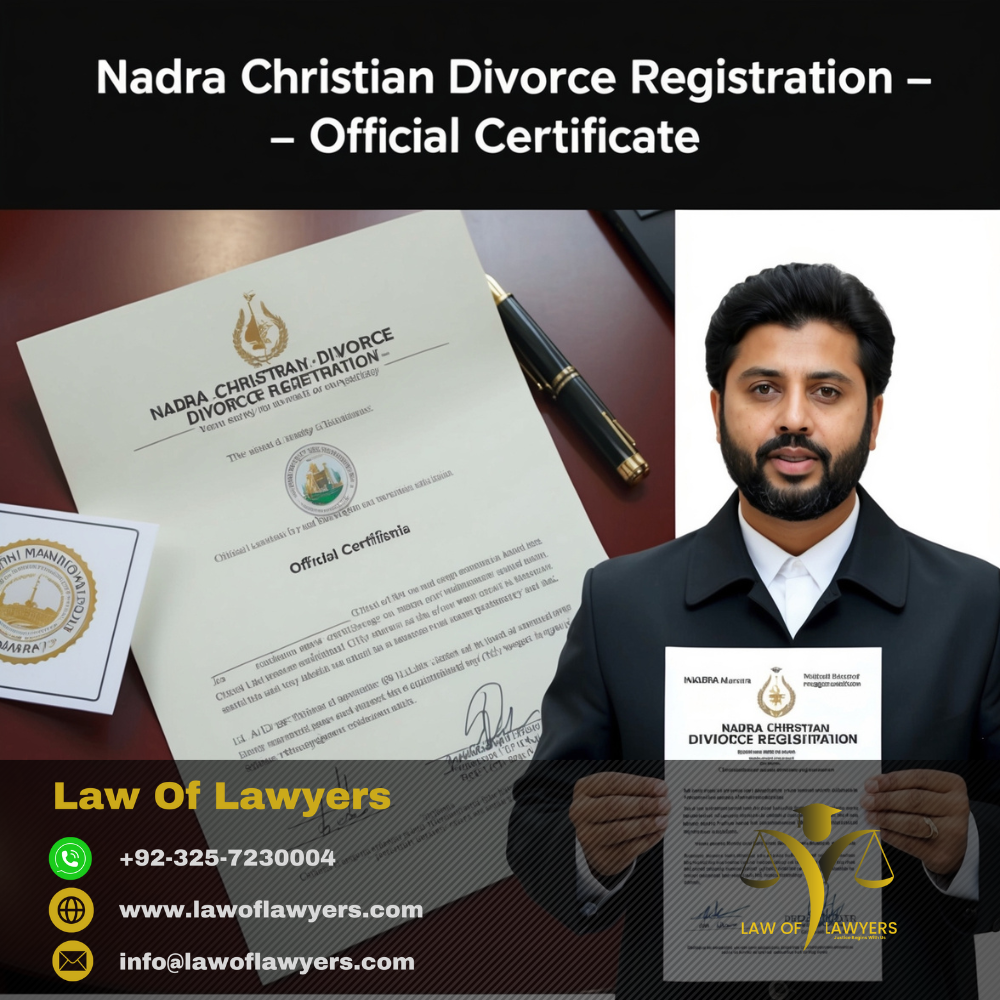Pakistani Christian divorce laws are governed by both religious and national laws. A Christian divorce attorney can guide clients through the procedures outlined in the Christian Marriage Act of 1872 and the Divorce Act of 1869. Christian marriage and divorce are governed by these laws.
Under these laws, divorce for Christians can be obtained through a court process. Key aspects include:
The Divorce Act of 1869 provides specific grounds on which a Christian can seek divorce, including adultery, cruelty, desertion, and others.
The process usually involves filing a petition in the appropriate court. The court will then review the case and make a decision based on the provided grounds.
Divorce by mutual consent is also permissible under the law. Both parties need to agree on the terms of the divorce, including division of property and child custody.
Before granting a divorce, courts may encourage or require mediation and reconciliation efforts to resolve disputes.
After a divorce, individuals are generally permitted to remarry under Christian marriage laws, provided they comply with legal requirements.
The specifics can vary, and consulting a legal expert in Pakistan who specializes in family law can provide detailed guidance tailored to individual circumstances.


The following documents are required when you are considering to register your divorce in NADRA union council.
Please note that if you are unable to meet the required documents then feel free to contact us we will arrange those documents.
Choosing Law of Lawyers for handling a Christian divorce in Pakistan could offer several advantages:
Law of Lawyers likely has specialized knowledge in the Christian Marriage Act and the Divorce Act, ensuring they are well-versed in the specific legal nuances and requirements for Christian divorces.
Their team might consist of experienced attorneys who have handled similar cases, offering insights and strategies to navigate the legal process efficiently.
Law of Lawyers can provide tailored advice based on the specifics of your case, helping you understand your rights and options in detail.
They can manage all aspects of the divorce process, from filing petitions to representing you in court, ensuring a streamlined and organized approach
If required, they can assist with mediation efforts or negotiation, aiming to resolve disputes amicably where possible.
Their commitment to addressing your concerns and providing support throughout the legal process can be a significant advantage during a challenging time.
Choosing a law firm with these qualities can help ensure that your divorce proceedings are handled with professionalism and sensitivity.

The process of Christian divorce in Pakistan, handled professionally, involves several key steps to ensure that the procedure is completed efficiently and in accordance with the law. Here’s an outline of the typical process:
Consult with a lawyer specializing in Christian divorce to understand your rights, grounds for divorce, and the legal process.
Discuss the specifics of your situation, including grounds for divorce, financial matters, and child custody if applicable.
Collect necessary documentation, such as marriage certificates, evidence of grounds for divorce (e.g., proof of adultery or cruelty), and any other relevant records.
Your lawyer will prepare a divorce petition based on your case details.
File the divorce petition in the appropriate family court, ensuring it meets all legal requirements.
Serve a copy of the petition to the spouse, who will then be required to respond.
The spouse may file a response, agreeing or contesting the divorce.
The court may require or suggest mediation to attempt to resolve the issues amicably.
Both parties will present evidence and testimonies in court. The judge will review these to make a determination.
If the court finds sufficient grounds and the case is uncontested or resolved, it will issue a divorce decree.
The decree becomes final after a specified period, allowing the divorce to be legally recognized.
Address any financial settlements, property division, and spousal maintenance as ordered by the court.
Finalize arrangements for child custody and support if applicable.
Ensure you receive certified copies of the divorce decree for official purposes.
if either party wishes to remarry, they must ensure compliance with any legal requirements regarding remarriage post-divorce.
A professional law firm, like Law of Lawyers, can guide you through each step, ensuring that the process is handled efficiently and in accordance with the legal framework for Christian divorces in Pakistan.
Ayesha Bibi v. John Smith
Court: Lahore High Court
Date: July 20, 2022
Citation: PLJ 2022 Lahore 500
The case of Ayesha Bibi v. John Smith, decided by the Lahore High Court in 2022, addresses the critical issue of Christian divorce certification in Pakistan. This landmark decision examines the legal implications of verbal divorce and emphasizes the importance of obtaining an official divorce certificate under the Christian Marriage Act, 1872.
The case revolves around Ayesha Bibi, a Christian woman who sought to remarry after receiving a verbal divorce from her former husband, John Smith. When her application for a divorce decree was dismissed by the Family Court due to lack of a formal divorce certificate, she petitioned the Lahore High Court. The court ruled that verbal divorce is not legally recognized for Christians in Pakistan, and emphasized the necessity of an official divorce certificate for legal recognition, remarriage, and resolution of property and inheritance matters. The judgment underscores the importance of formal documentation in Christian matrimonial law and its impact on civil and religious legal frameworks in Pakistan.
Are you interested in exploring the intricate balance between religious practices and legal requirements in family law? This case offers a fascinating glimpse into the complexities of Christian divorce proceedings in Pakistan. To delve deeper into the court’s reasoning, the specific provisions of the Christian Marriage Act discussed, and the potential implications of this ruling on future cases, click the link to access the complete case details. Discover how this decision might shape legal perspectives on religious divorces and civil recognition in Pakistan and beyond.
An online Christian divorce allows individuals to dissolve their marriage remotely through legal procedures while adhering to Christian laws and practices with help of Law of Lawyers.
Yes, you can initiate an online Christian divorce from abroad, provided you meet the legal requirements and provide the necessary documentation.
Yes, an online Christian divorce is recognized in Pakistan and Abroad if it follows the legal procedures and is validated by the relevant authorities.
Typically, you need a copy of your marriage certificate, identity documents, and any other evidence supporting the divorce grounds.
Yes, foreigners married under Christian law in Pakistan can apply for an online divorce, subject to legal requirements.
While mutual consent can simplify the process, but it is not mandatory. Divorce can also be granted based on valid legal grounds like desertion or cruelty.
You can contact Law of Lawyers online to discuss your case. They will guide you through the process, from filing to finalizing the divorce.
No, you do not need to travel to Pakistan. The process can be managed remotely with the help of a legal service provider.
Yes, a foreign national can initiate the divorce process even if their spouse resides in Pakistan with help of Law of Lawyers.
You can still proceed with the divorce if you have valid legal grounds such as adultery, cruelty, or desertion. So contact now for free consultation related to your divorce.
Navigate Christian divorce laws in Pakistan with expert support. Our specialized attorneys offer personalized advice and handle every legal aspect. Book your free consultation to ensure your rights are protected.
Benefit from over 25 years of legal experience. Our seasoned attorneys are here to navigate you through every legal challenge.
We tailor strategies to meet your specific needs. Your case is unique and so is our approach to resolving it.
Track record of countless successful cases. Trust in our ability to deliver winning outcomes for our clients.
Your interests and rights are always our top priority. We work diligently to ensure you receive the best possible representation.